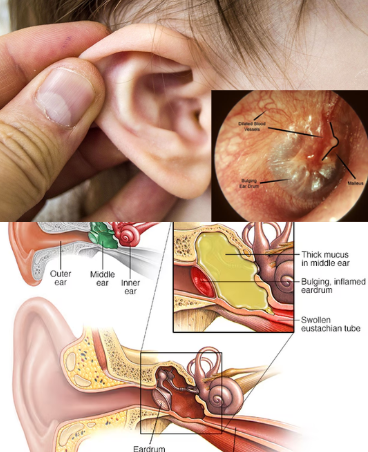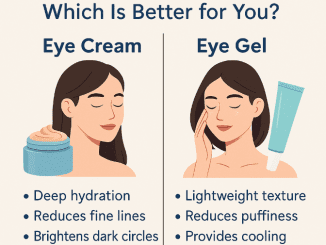
Ear infections aren’t just a childhood problem — around 20% of adults experience them too. While it’s normal for both children and adults to be affected by bacteria or viruses, certain factors make some people more vulnerable. Those with weakened immune systems, chronic inflammation, or frequent exposure to water should be especially cautious.
Ear infections can be painful, disruptive, and, if ignored, lead to serious complications. The good news? Recognizing the early warning signs can help you get treatment fast and avoid long-term damage.
Recognizing the First Signs of an Ear Infection
The earlier you spot an ear infection, the easier it is to treat. Here are the most common symptoms to watch out for:
Pain or Discomfort
It usually starts as mild pain inside the ear, especially when you tug your earlobe or press on the small cartilage bump (tragus) in front of the ear canal. As the infection progresses, you may feel a sense of fullness or pressure. In severe cases, the pain can spread to your face, neck, or the side of your head.
Redness in and Around the Ear
In the early stages, you might notice light redness inside your ear canal. If the infection worsens, this redness can extend to the outer ear and become more visible.
Itchiness
A slight itch in the ear canal may be one of the first signs something is wrong. Left untreated, this itchiness often intensifies and can lead to more irritation.
Drainage of Odorless Fluid
In some cases, an ear infection causes clear, odorless fluid to drain from the ear. At first, it might be just a few drops, but as the infection advances, the discharge can become more frequent and heavier.
Video : Middle Ear Infections: Otitis Media – Ask A Nurse |
Swollen Neck Lymph Nodes
If you leave an infection untreated, it can trigger swollen lymph nodes near the ear or neck. This can also cause fever and, in some cases, completely block the ear canal.
Muffled Hearing or Ringing in the Ear
While mild infections may not affect hearing, more severe cases can cause reduced hearing ability or a constant ringing sound (tinnitus). This happens when swelling or fluid disrupts the ear’s ability to transmit sound properly.
Why Adults Get Ear Infections
Even though ear infections are more common in children, adults aren’t immune. Common causes include:
- Bacterial or viral infections (often after a cold or respiratory illness)
- Prolonged moisture in the ears from swimming or bathing
- Irritation or injury from inserting foreign objects like cotton swabs
- Allergic reactions that cause swelling and fluid buildup
Prevention Tips to Keep Your Ears Healthy
While you can’t always prevent infections, following these steps can significantly lower your risk:
Avoid Cotton Swabs and Foreign Objects
Using cotton swabs might feel like you’re cleaning your ears, but they can actually push wax deeper, creating blockages. Foreign objects like hairpins, keys, or paper clips can scratch delicate ear skin, making it easier for bacteria to enter.
Dry Your Ears Properly After Swimming or Bathing
After water exposure, tilt your head to each side to let water drain naturally. Pull your earlobe gently in different directions to help it escape. If moisture lingers, use a blow-dryer on low heat and speed to keep the ear canal dry.
Wear a Swimming Cap or Earplugs
If you’re prone to ear infections, protect your ears while swimming. A snug swimming cap can block water, while comfortable earplugs add extra protection. For personalized advice, ask your doctor which option works best for your ears.
When to See a Doctor
Don’t ignore ear pain that lingers for more than a day or two, especially if it’s accompanied by fever, hearing loss, or fluid drainage. Prompt medical attention can prevent the infection from spreading deeper and damaging your hearing.
Video : Ear Infections – Symptoms, Causes and Treatments
The Bottom Line
Ear infections in adults may be less common than in children, but they’re just as uncomfortable — and potentially serious. By learning the warning signs, avoiding risky habits like inserting objects into your ears, and keeping your ears dry, you can protect your hearing and overall ear health.
Your ears are delicate, and they play a crucial role in your daily life. Treat them with care, respond quickly to any symptoms, and you’ll greatly reduce the chances of long-term problems.


